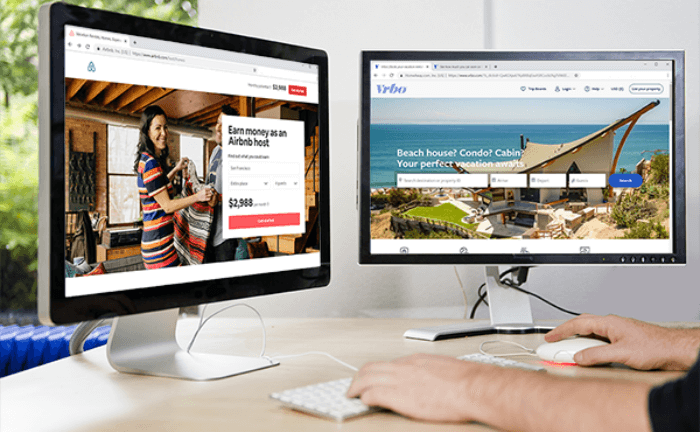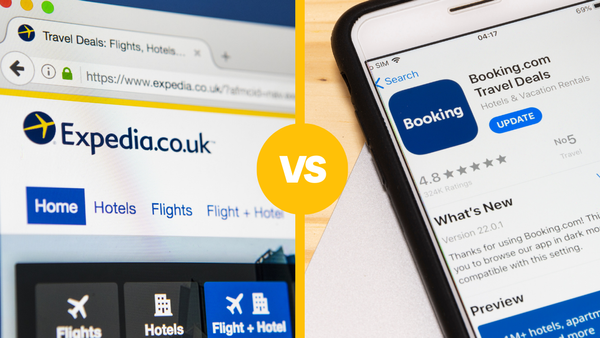How to Finance a Vacation Home and Tips for Managing the Process

Your dream vacation home in the US can set you back as much as half a million dollars on average. This means that most aspiring real estate investors will need to find some form of financing to make their dream of owning a vacation home a reality.
While a high credit score will make applying for financing a lot easier, there are a number of other ways that you can improve your chances of getting approved. Continue reading to learn more about all the essentials that you need to have in place when buying a vacation home.

Vacation Home vs. Rental Property: What’s the Difference?
You might plan on turning your vacation home into a rental property. Depending on the local rules and regulations, that might be totally possible. However, there are slight differences between how a vacation home and rental property are financed.
A vacation home is usually defined as a second property that is no closer than 50 miles to your main residence. The reason why distance is used in the definition is that if it is closer than 50 miles to your primary residence, financial institutions will be inclined to view it as a vacation rental. As mentioned, renting out a vacation home is perfectly legal in most instances, but if that is the plan there are different regulations that you need to keep in mind when applying for financing. Plus, you will probably have a harder time and get slapped with a higher interest rate.
What Credit Score Is Needed to Buy a Second Home?
It is key that you have a good credit score if you are planning on applying for financing for a vacation home. In the United States, you will probably need a credit score of at least 650, but some online sources suggest it should be as high as 717.
That said, aim for a higher credit score, especially when you are buying a second property. It will help you to get better terms and will also increase your chances of getting approved the first time around. This means that in the long run it can work out in your favor if you first focus on improving your credit score before approaching a mortgage lender.
If you are not sure about your credit score, get a credit report. Even if you are not planning on applying for a loan, you should keep tabs on your credit history. Without even knowing it, there are several factors that can impact your credit score such as:
- Length of your credit history
- Amounts owed
- Payment history
- Different types of credit
How to Afford Down Payments
If you want to buy a second property in the United States, you will need to make a down payment. While this can sound overwhelming and complicate your house-hunting, there are ways that you can make your down payment more affordable.
Begin by comparing the terms offered by various lenders. Just like with other types of purchases, it is best to shop around till you find the best deal.
Also, applying for a home equity line of credit (also called a HELOC) can help you to keep your down payment affordable. It is similar to a home equity loan, but rather than receiving a lump sum of cash you can access a line of credit that can be used as a down payment. Remember that you can also get a secured business line of credit instead of a HELOC.

Popular Financing Options Available for a Vacation Property
There are a number of financing options that you can explore if you are interested in buying a secondary residence. These include:
Cash-out refinance
With this approach, you will essentially replace a current mortgage with a new one for a larger amount. One drawback is that the interest rate is typically higher.
Home equity lines of credit (HELOC)
In short, with this type of financing option you will borrow against available equity in your primary property. For this to work, though, you will need substantial equity in your main residence. In other words, the value of this property should be more than the outstanding amount owed. As mentioned earlier, one of the benefits of going the HELOC route is that you can use it to make your down payment more affordable.
On the other hand, you run the risk of losing your primary home as this will be used as collateral.
A new home mortgage
If neither of the other two financing options will work for you, you can always apply for a new loan for the vacation property that you would like to buy. This loan will operate independently from your first mortgage.
If the thought of possibly losing your primary home should things go south scares you, this approach can give you more peace of mind. Keep in mind, however, that you will need to make a down payment of 20% at least.
Can FHA Loans Be Used to Finance Vacation Homes?
A Federal Housing Administration loan (or simply an FHA loan) is aimed at financing primary residences. This means that the chances are slim that you will be able to use it to finance a vacation property.

Six Top Tips for Financing a Vacation Rental Home
-
Identify your goals
Before you can apply for financing, you first need to understand your reasons for this type of investment. For example, where will the property be located? Are there any specific types of properties that you are interested in more?
Having an overview of what your motives are will help you to find the best property and most sensible financing option.
-
Learn more about the real estate market
There are a handful of factors that can impact your new property investment. These include:
- Average property prices
- Seasonality
- Occupancy rate
- Anticipated rent
- Average daily rates
A real estate agent will be able to help you with this data.
You might not be interested in turning your vacation home into a vacation rental just yet, but by considering these factors too, you ultimately keep your options open. Even if these metrics do not interest you, research the market beforehand to ensure that you are not paying more for the property than what it is worth.
-
Get pre-approved
When hunting for a potential vacation home, remember that you are not the only interested buyer. Getting pre-approved for a loan can help you to distinguish yourself from other potential vacation home buyers.
So, in addition to a recent credit report, ensure that you have your other documents, like proof of income and employment, ready.
-
Reach out to local banks
In some instances, your local bank might be able to offer you a better rate. Not only will you benefit, but also your local community which in return can benefit your new investment again. After all, supporting local businesses where you can is always the right thing to do.
-
Start an extra savings account
In addition to a down payment, it is also recommended that you save some additional money. It can help you to get approved for financing quicker and also when it comes to repayment. Even if you do not plan on using these extra funds to repay your loan faster, you will only be too happy to have it available in case you need to do repairs.
-
Reduce your debt-to-income ratio
Not only should you have a good credit score, but it is also key that you pay attention to your debt-to-income ratio (or simply called DTI). Lenders will feel more comfortable approving a loan to you if you do not have significant existing debt behind your name yet. What’s more, your chances of getting better terms are also higher. Otherwise, you can expect to pay slightly higher interest rates.
To work out your debt-to-income ratio, divide your monthly debt expenses by your monthly gross income. Ideally, it should be about 36%. If your DTI falls within that range, you can also feel more rest assured knowing that the monthly mortgage payments won’t necessarily add that much extra stress.
Wrapping Things Up
The reality is that there are very few people who will be able to use their cash savings to buy their dream vacation home. Even if it is a viable option for you, you will need to keep in mind that you will still need cash savings left to maintain your new property, pay property taxes, and other unexpected expenses. In most cases, you will most likely use your cash savings to make a larger down payment and then apply for some type of loan and pay interest.
To help you ensure that your new investment property does not place too much strain on your monthly budget, it is key that you do your due diligence. Study the different loan requirements and weigh up your options.
If you applied for a traditional mortgage, you will already be familiar with the process. In this case, you probably have an excellent credit score or enough equity that can count in your favor.
If you have been renting till now and the world of home loans is new to you, work with an experienced loan officer who can guide you through the process and help you determine your real purchasing power.
Want simplify your Vacation Rental Management?






